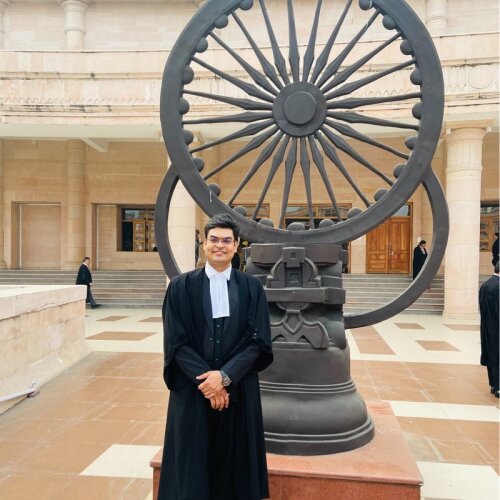Best Creditor Lawyers in Lucknow
Share your needs with us, get contacted by law firms.
Free. Takes 2 min.
List of the best lawyers in Lucknow, India
About Creditor Law in Lucknow, India:
Creditor law in Lucknow, India, is primarily governed by the Indian law and regulations that are uniformly applied across the country. This field of law covers both secure and unsecured creditors, dealing primarily with issues surrounding lending, collection, security enforcement, insolvency and bankruptcy. In specific terms, the laws that regulate these fields include The Insolvency and Bankruptcy Code, 2016; The Recovery of Debts Due to Banks and Financial Institutions Act, 1993; and The Securitization and Reconstruction of Financial Assets and Enforcement of Security Interest Act, 2002.
Why You May Need a Lawyer:
Individuals or businesses may require the services of a lawyer specializing in creditor laws in several situations. For example, if a creditor is having trouble recovering debts from a borrower, they might need legal help to understand their rights and the best way forward. Similarly, if a creditor wishes to enforce security over a loan or deal with insolvency or bankruptcy of a borrower, a knowledgeable lawyer can provide necessary advice and guide through legal procedures. It is also advisable to consult a lawyer when drafting lending agreements to ensure they comply with laws and protect creditor rights.
Local Laws Overview:
Aspects of local laws in Lucknow related to creditor rights are defined under the same national laws applied in India. The Insolvency and Bankruptcy Code, 2016, offers a comprehensive framework to resolve insolvency situations in a time-bound manner. The Recovery of Debts Due to Banks and Financial Institutions Act, 1993, creates a mechanism for speedy recovery of debts by banks and financial institutions. Additionally, The Securitization and Reconstruction of Financial Assets and Enforcement of Security Interest Act, 2002, enables secured creditors to take possession of secured assets without requiring court intervention.
Frequently Asked Questions:
1. How can a creditor recover their debt under Indian law?
There are several channels available for debt recovery, which include civil suits in courts, arbitration proceedings, and resorting to the Recovery of Debts Due to Banks and Financial Institutions Act, 1993, and The Securitization Act, 2002.
2. What options do creditors have if a debtor files for bankruptcy?
Under the Insolvency and Bankruptcy Code, a creditor can initiate insolvency proceedings against the debtor. Once the proceedings start, a resolution plan is formulated to repay the creditors.
3. Is there a statute of limitations for debt recovery in India?
According to the Indian Limitation Act, the period for debt recovery is 3 years from the date the debt becomes due.
4. What is the significance of a loan agreement?
A loan agreement serves as a legal document outlining the rights and responsibilities of both the lender and borrower. It proves the existence of debt and enables easy recovery of debts.
5. How does The Securitization Act assist creditors?
The Securitization Act allows creditors to enforce their security interest and recover debts without the intervention of the court if the borrower defaults.
Additional Resources:
The official websites of India's Ministry of Finance, Reserve Bank of India (RBI), Debt Recovery Tribunal, and The National Company Law Tribunal offer valuable resources and guidance related to creditor laws and rights in India. Additionally, legal portals such as India Legal, Bar and Bench, and Live Law provide up-to-date information about various creditor-related laws and amendments.
Next Steps:
If you need legal assistance in dealing with credit laws, consider contacting a lawyer specialized in creditor laws or a law firm. They will guide you through the complex processes by providing pertinent advice and representation, ensuring that your rights are protected as a creditor. Feel free to also reach out to governmental bodies and legal organizations for additional support and guidance.
Lawzana helps you find the best lawyers and law firms in Lucknow through a curated and pre-screened list of qualified legal professionals. Our platform offers rankings and detailed profiles of attorneys and law firms, allowing you to compare based on practice areas, including Creditor, experience, and client feedback.
Each profile includes a description of the firm's areas of practice, client reviews, team members and partners, year of establishment, spoken languages, office locations, contact information, social media presence, and any published articles or resources. Most firms on our platform speak English and are experienced in both local and international legal matters.
Get a quote from top-rated law firms in Lucknow, India — quickly, securely, and without unnecessary hassle.
Disclaimer:
The information provided on this page is for general informational purposes only and does not constitute legal advice. While we strive to ensure the accuracy and relevance of the content, legal information may change over time, and interpretations of the law can vary. You should always consult with a qualified legal professional for advice specific to your situation.
We disclaim all liability for actions taken or not taken based on the content of this page. If you believe any information is incorrect or outdated, please contact us, and we will review and update it where appropriate.









